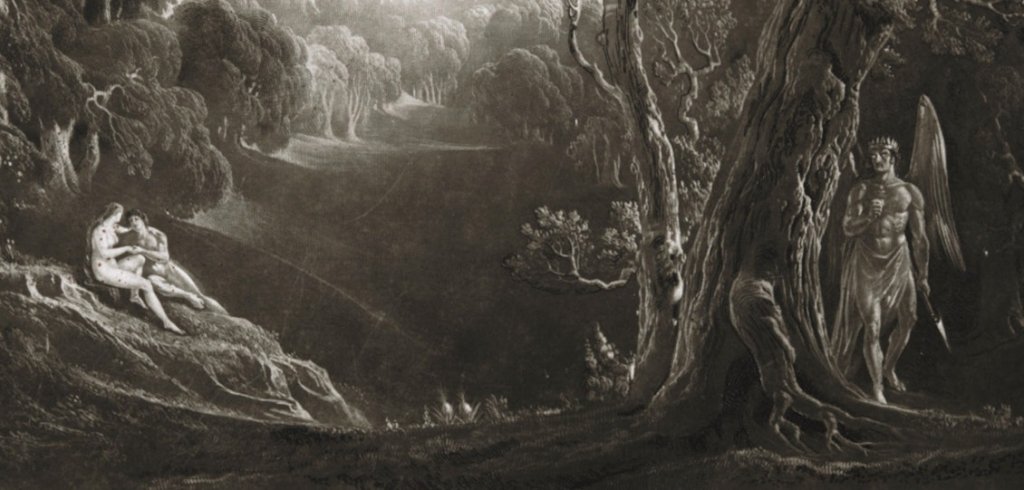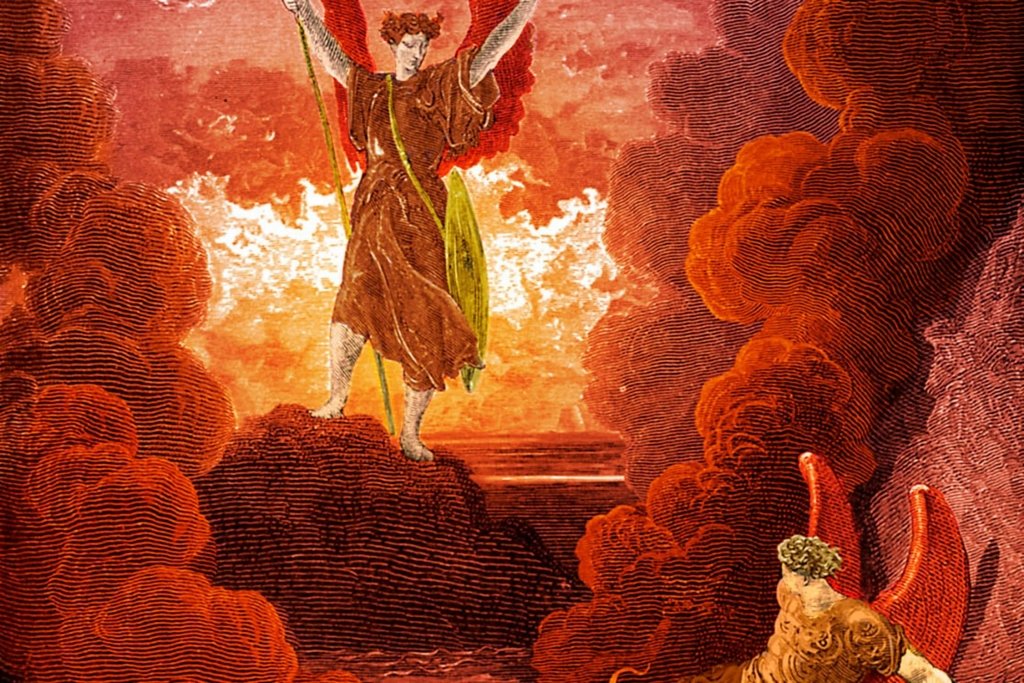Supported by the norms of epic, Satan constructs the very basic portrait of an individual. Satan’s rebellion semantically corresponds to defiance of external authority whilst claiming his own. This individual aspect also could build on the template of epic norms.
In putting accentuation upon vast imagination, epic space also expands the capacity of the hero not only physically but also psychologically, thus endowing Satan with the capacity to “refashioning”.
First of all, because Satan’s denial coincides with his individuation, the reader should understand what he refuses to integrate into. When reduced to its basic elements, authority stresses its own ascendency with no regard. Robert J. Bocock associates the symbolic father -including God- with “the severe enforcer of authority, above all as the prohibitor…[that] has reserved all creativity” (The Symbolism 209).
So, any domain with the presence of autocratic domination requires a collectivist stance that preempts any self-definition in favour of authority. Therefore, God’s authority ensnares sui generis mind and soul in his collective panopticon, namely heaven, ergo stultifying the incubation of individuation.
Rather than relinquishing his self-defined authority, Satan “voluntarily” rejects the authority of God, and “chooses” to do evil. On this reasoning, qua individual, Satan breaks the phenomenal entrapment of collectivism through resorting to his individualistic aspect.

Concept of individual prerequisites autonomy -authority of mind. Thomas Greene in his article The Norms of Epic notes that an epic hero has authority imbued with passion (197). Within the framework of his autonomy, Satan appears as a self-determined and courageous figure, even in the ordeal of hell.
Actually, the epic universe offers places to be invaded by “will” and vast “imagination” with authority of mind, which an epic hero’s career imitates accordingly. (194). So, claiming authority under his “career” as a “defiant”, Satan is semantically endowed with “fashioning” to invade unknown lands of epic space through imagination, including himself.
Apparently, as he re-defines himself into the leadership and the compassion of an epic hero, Satan also re-defines hell. Certainly, these refashionings are coterminous with his individualistic aspects. Satan refashions hell into his heaven. He finds consolation in despair. He sees freedom in hell and captivity in heaven. This reiterates their freedom throughout the book.
This not only pinpoints Satan’s authority in mind as an epic hero, but also as an individual in epic space.

Therefore, the rebellion of Satan bespeaks his individuation process whilst inveighing against external authority. Needless to state, as aforementioned, external authority plagues any individuation process in exploring different aspects of heaven.
Since epic space is the “City of Man not of God”, it underlines free-will to some extent (Greene 198). Rather than relinquishing from his self-defined authority. Satan “voluntarily” rejects authority of God, and “chooses” to do evil.
On this reasoning, qua individual, Satan breaks the phenomenal entrapment of collectivism through resorting to his individualistic aspect. Satan’s individualized imagination forms complex elevated language with epithets and epic similes. It doesn’t suit the banal psychic paralysis of collective heaven. Therefore, his fall could be read as this: falling from a hell-like, delimiting heaven into his heavenly freedom, orbiting around individuation..
Works Cited











